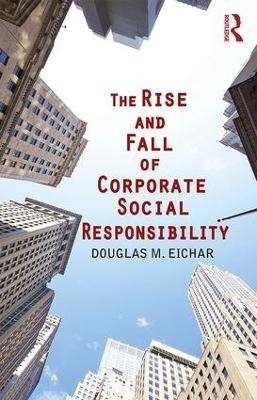
The Rise and Fall of Corporate Social Responsibility
Seiten
2017
Routledge (Verlag)
978-1-4128-6520-3 (ISBN)
Routledge (Verlag)
978-1-4128-6520-3 (ISBN)
Corporate social responsibility was one of the most consequential business trends of the twentieth century. Having spent decades burnishing reputations as both great places to work and generous philanthropists, large corporations suddenly abandoned their commitment to their communities and employees during the 1980s and 1990s, indicated by declining job security, health insurance, and corporate giving.
Douglas M. Eichar argues that for most of the twentieth century, the benevolence of large corporations functioned to stave off government regulations and unions, as corporations voluntarily adopted more progressive workplace practices or made philanthropic contributions. Eichar contends that as governmental and union threats to managerial prerogatives withered toward the century's end, so did corporate social responsibility. Today, with shareholder value as their beacon, large corporations have shred their social contract with their employees, decimated unions, avoided taxes, and engaged in all manner of risky practices and corrupt politics.
This book is the first to cover the entire history of twentieth-century corporate social responsibility. It provides a valuable perspective from which to revisit the debate concerning the public purpose of large corporations. It also offers new ideas that may transform the public debate about regulating larger corporations.
Douglas M. Eichar argues that for most of the twentieth century, the benevolence of large corporations functioned to stave off government regulations and unions, as corporations voluntarily adopted more progressive workplace practices or made philanthropic contributions. Eichar contends that as governmental and union threats to managerial prerogatives withered toward the century's end, so did corporate social responsibility. Today, with shareholder value as their beacon, large corporations have shred their social contract with their employees, decimated unions, avoided taxes, and engaged in all manner of risky practices and corrupt politics.
This book is the first to cover the entire history of twentieth-century corporate social responsibility. It provides a valuable perspective from which to revisit the debate concerning the public purpose of large corporations. It also offers new ideas that may transform the public debate about regulating larger corporations.
Douglas M. Eichar is an Associate Professor and Chair of the Department of Sociology and Criminal Justice at the University of Hartford, USA.
Preface
1 Introduction
2The End of the Nineteenth Century: Regulatory Pathways are Set
3 Progressives Attempt to Tame the Beast
4 The 1920s: Cooperation is Key
5 The Great Depression: Everything Changes, But Remains the Same
6 The Postwar Triumph of America’s Peculiar Regulatory Structure
7 The 1970s: The Peak of America’s Regulatory Structure
8 The Decline of Corporate Social Responsibility
9 Can the Beast Be Re-Tethered?
Bibliography
Index
| Erscheinungsdatum | 01.06.2017 |
|---|---|
| Verlagsort | New York |
| Sprache | englisch |
| Maße | 152 x 229 mm |
| Gewicht | 544 g |
| Themenwelt | Geschichte ► Teilgebiete der Geschichte ► Wirtschaftsgeschichte |
| Wirtschaft ► Allgemeines / Lexika | |
| Wirtschaft ► Betriebswirtschaft / Management ► Allgemeines / Lexika | |
| Wirtschaft ► Betriebswirtschaft / Management ► Unternehmensführung / Management | |
| ISBN-10 | 1-4128-6520-4 / 1412865204 |
| ISBN-13 | 978-1-4128-6520-3 / 9781412865203 |
| Zustand | Neuware |
| Haben Sie eine Frage zum Produkt? |
Mehr entdecken
aus dem Bereich
aus dem Bereich
die Ukraine, Polen und der Irrweg in der russischen Geschichte
Buch | Hardcover (2023)
C.H.Beck (Verlag)
28,00 €
eine Globalgeschichte des Kapitalismus
Buch | Hardcover (2023)
C.H.Beck (Verlag)
38,00 €


